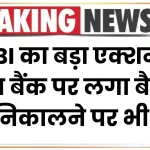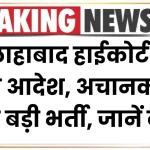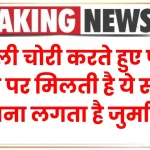
Managing debt can sometimes feel overwhelming, especially when unforeseen financial challenges arise. This is where understanding loan settlement rules becomes crucial. Loan settlement, often referred to as debt settlement, is a process where banks and financial institutions allow borrowers to settle their outstanding loan by paying a reduced sum. But what exactly happens during loan settlement, and how does it benefit the borrower? Let’s break it down in simple, easy-to-follow steps.
Loan Settlement Rule
| Key Points | Details |
|---|---|
| Loan Settlement Definition | Agreement between borrower and bank to close loan at a reduced lump-sum payment |
| Who Can Opt for It | Borrowers facing financial distress, inability to pay EMIs |
| Bank Actions | Financial assessment, negotiation, formal settlement agreement, debt closure |
| Benefits to Borrower | Reduced debt burden, quick resolution, avoids bankruptcy |
| Drawbacks | Negative impact on credit score, tax implications |
Loan settlement is a lifeline for borrowers facing genuine financial hardship. It offers a way to reduce debt burden and avoid bankruptcy or legal action. However, it should be approached with caution, as it has long-term impacts on credit health. Always weigh the pros and cons, consult financial experts if necessary, and keep all communication documented. Understanding loan settlement rules empowers you to make informed decisions and regain control of your financial future.
What is Loan Settlement?
Loan settlement is an agreement between a borrower and the bank or lender to repay a portion of the outstanding loan amount in a lump sum, with the remaining amount being waived off by the lender. This typically happens when the borrower is unable to repay due to financial hardship—such as job loss, medical emergencies, or severe debt burden.
To give an example, imagine you took a loan of ₹5,00,000 but due to unforeseen circumstances, you can only afford ₹3,00,000. The bank might agree to accept this ₹3,00,000 and close the loan, marking the account as “settled” instead of “paid in full.”
see also: SSY vs PPF: Which Government Scheme is Better?
How Do Banks Handle Loan Settlements?
Banks follow a structured process to ensure that loan settlements are carried out systematically and fairly. Here’s a step-by-step guide:
1. Financial Assessment of the Borrower
Banks begin by carefully evaluating your financial situation. They may ask for:
- Income proof (salary slips, IT returns)
- Expenses and liabilities
- Existing debts or loans
- Bank statements
This assessment helps banks determine if you genuinely cannot repay the full amount.
2. Negotiation Phase
Once convinced of the borrower’s financial distress, banks negotiate the terms. Typically, they may offer:
- A reduced lump-sum payment amount
- A specified deadline to clear this amount
This negotiation benefits both parties—it helps the borrower avoid legal complications and the bank recovers a significant portion of the loan.
3. Drafting a Settlement Agreement
Once both parties agree, banks issue a formal loan settlement letter or agreement. It mentions:
- Reduced loan amount to be paid
- Payment timeline
- Waiver of remaining dues after payment
4. Closure and Reporting
After receiving payment, the bank marks the loan as “settled” in the credit bureau records. Note: it’s different from “closed” or “paid in full,” and may affect your credit score.
Benefits of Loan Settlement to Borrowers
Though loan settlement comes with its own pros and cons, it provides several key benefits to borrowers:
1. Debt Relief
The immediate benefit is financial relief. Instead of struggling to pay the full loan, borrowers can settle for a lesser amount.
Example: If you owe ₹5 lakhs but settle for ₹3 lakhs, you save ₹2 lakhs instantly.
2. Avoiding Legal Action or Bankruptcy
Banks may proceed with legal action for unpaid loans. Settlement helps avoid this.
3. Quick Resolution
Instead of prolonged EMIs and interest accrual, the borrower clears the loan in one go, gaining mental peace.
4. Opportunity to Rebuild Finances
Once the loan is settled, borrowers can start planning better financially and avoid further debt traps.
Drawbacks and Considerations
Loan settlement is not always a perfect solution. Here are some things borrowers must keep in mind:
1. Impact on Credit Score
While the loan is closed, it’s reported as “settled,” which reflects negatively in your credit history. This can reduce your CIBIL score by 75-100 points and stays on your report for up to 7 years.
2. Difficulty in Availing Future Loans
Banks and NBFCs may hesitate to lend to someone with a “settled” loan status, impacting your future creditworthiness.
3. Tax Implications
According to tax laws in some countries (like India), the amount waived off might be considered taxable income, requiring you to pay taxes on the forgiven sum.
When Should You Consider Loan Settlement?
Loan settlement should be your last resort. You should explore other options first:
- Loan restructuring or EMI moratorium: Temporarily pause or reduce EMI payments
- Top-up loans or consolidation loans: Combine multiple loans into one manageable loan
- Borrowing from family/friends: If possible, to clear the loan without impacting credit score
Only if all these fail and you’re facing severe financial hardship, should you proceed with settlement discussions.
How to Approach Loan Settlement Effectively?
Step 1: Speak with Your Bank Directly
Don’t wait for the loan to default. Contact your bank’s loan officer and explain your financial difficulties clearly.
Step 2: Provide All Necessary Documents
Submit income statements, medical bills (if applicable), and other proofs to back your claim.
Step 3: Negotiate in Writing
Always insist on a written settlement agreement with clear terms—mentioning the settlement amount, due date, and closure details.
Step 4: Keep Proof of Payment
Once paid, collect an official NOC (No Objection Certificate) from the bank.
Step 5: Check Credit Report After Settlement
After 60 days, check your credit report and ensure the loan status reflects correctly as “settled.”
see also: Depositing ₹2,500 Every Month Will Give You Huge Returns
Loan Settlement Rules FAQs
1. Is loan settlement good or bad for my credit score?
While it provides immediate financial relief, loan settlement negatively impacts your credit score. It is marked as “settled,” which may reduce your chances of getting future loans.
2. Can anyone apply for loan settlement?
Loan settlement is usually considered for borrowers genuinely unable to pay due to reasons like job loss, medical emergencies, or heavy debt burden. It is not an option available for all borrowers.
3. Is there a fee involved in loan settlement?
Some banks may charge a processing fee for settlement. Always clarify if there are any additional charges involved.
4. Will banks forgive all types of loans?
Loan settlement is more common for unsecured loans like personal loans or credit cards, rather than secured loans like home loans where the bank has collateral.
5. Can I rebuild my credit after loan settlement?
Yes! Though it takes time, you can rebuild your credit by paying EMIs on time, using credit responsibly, and monitoring your credit score regularly.











